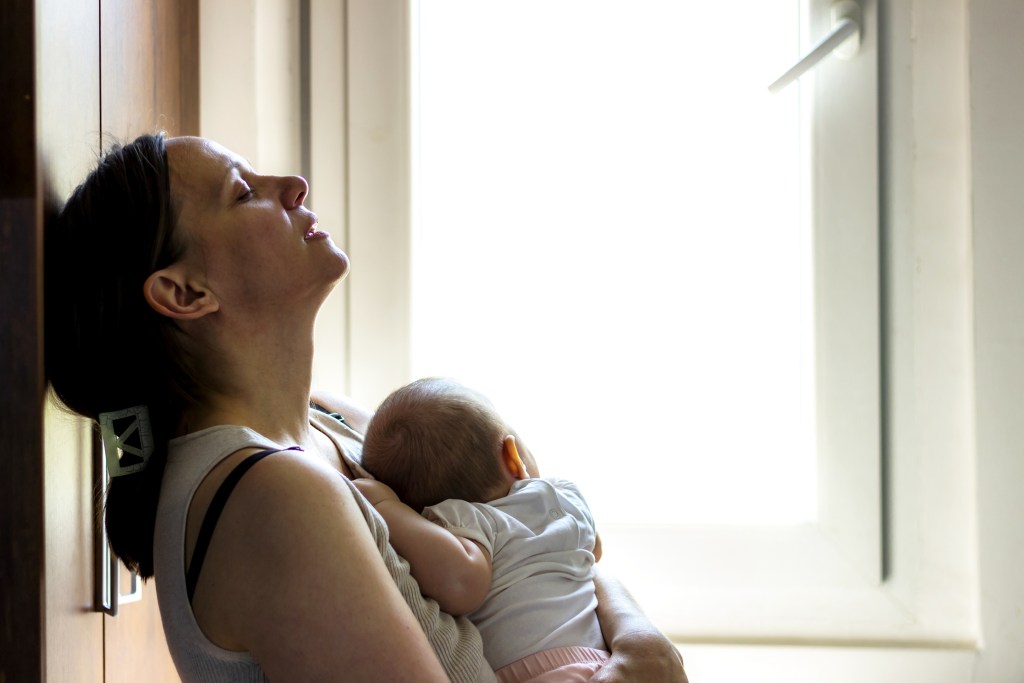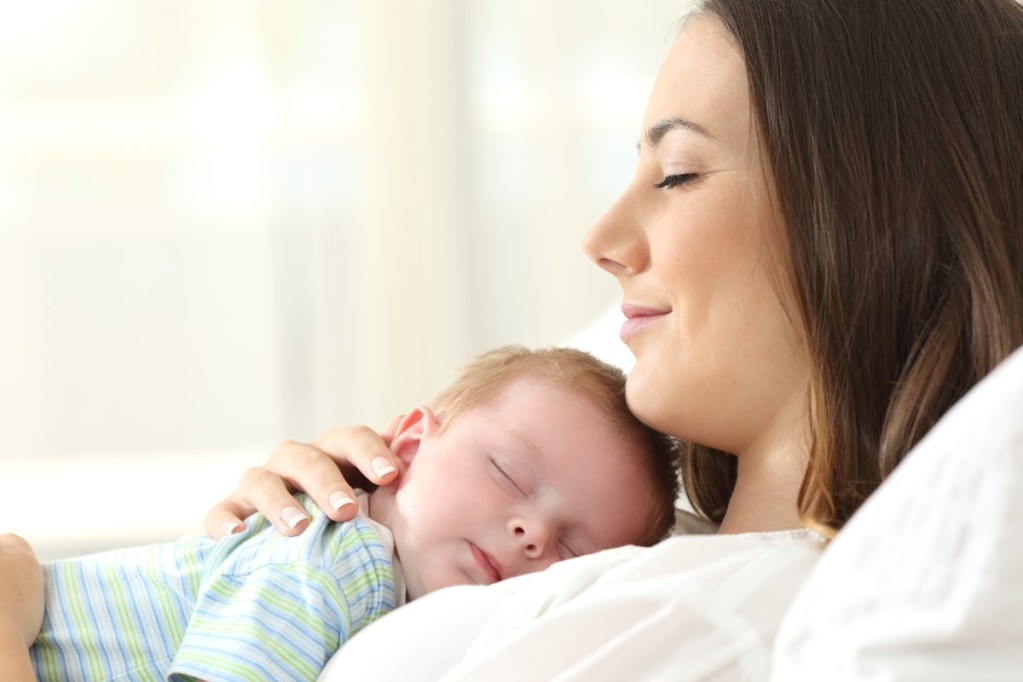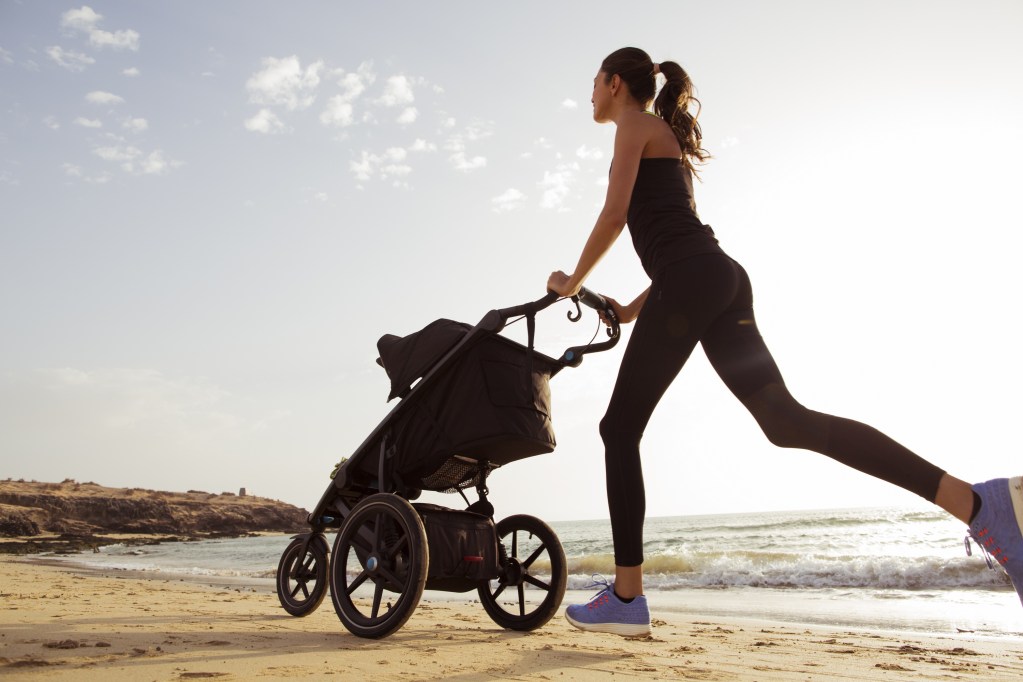
No matter how long you choose to breastfeed for, the transition away from breastfeeding is not always easy. For some, it may be quick and painless, while for others it can be more difficult. Many women assume that the move from breastfeeding to all bottle, no boob, will be no problem, right? And for many, it is no problem, but for others, what often creeps up is post-weaning depression. Not everyone realizes that depression after breastfeeding can be common.
- What is post-weaning depression?
- What are the symptoms of post-weaning depression?
- Why do some women experience post-weaning depression?
- How is post-weaning depression different from postpartum depression?
- How long will post-weaning depression last?
- 5 tips for preventing or dealing with post-weaning depression
- Why this type of depression isn’t as well-known
This is what you wanted — what you’ve been striving for — so why do you feel so darn sad? Why are you having a hard time letting go of this moment in time? And, seriously, what is up with this sudden emotional distress and mental exhaustion? It is called post-weaning depression. Depression after weaning is normal, but you need to spot post-weaning depression symptoms in order to know what you are battling. It’s real, and it’s confusing — so let’s clear some things up.

What is post-weaning depression?
While you most likely know about postpartum depression, there’s a good chance you have never heard the term “post-weaning depression.” And while it warrants more attention, there is a definitive lack of medical research on depression after weaning.
The gist of it is this: After weaning a baby from breastfeeding (after any amount of time), a mom may, quite suddenly, feel depressed, anxious, irritable, emotional, or guilty. She may experience mood swings and sudden exhaustion, meaning the effects may be mental and physical. The symptoms may last for a few weeks. These post-weaning depression symptoms all add up over time.

What are the symptoms of post-weaning depression?
Symptoms of post-weaning depression can present as similar to postpartum depression and include sadness, irritability, anxiety, grief, lack of motivation, and mood swings, to name a few.

Why do some women experience post-weaning depression?
While scientific research is limited, there are several quite obvious reasons women may experience some degree of post-weaning depression:
- Hormonal changes after weaning: First and foremost, keep in mind that your postpartum hormones are already all over the place. In some ways, breastfeeding has regulated and stabilized your hormonal levels. What’s more, when you nurse your baby, you benefit from the effects of the “happy hormones,” prolactin and oxytocin. As you wean your little love bug from the breast and ultimately stop nursing, these hormones plummet. This may be especially true if you stop breastfeeding quite suddenly. It’s possible that you may feel temporarily sad (among other emotions) once these hormones are no longer regularly flowing.
- The return of your period: If you have not gotten your period back yet, you can anticipate that it’ll most likely make its long-awaited encore performance soon after weaning. Watch out, it may be a doozy, and this, too, will put your hormones to the test. You may feel “extreme PMS” and these mood swings and strong emotions can contribute to and pile on top of that, post-weaning depression.
- Ending a milestone: In addition to the very real hormone and chemical responses happening in your body, there’s also the emotional pull of ending your breastfeeding journey. Even if you are eager to have more freedom and take back your breasts, you may suddenly be surprised by the overpowering sadness that comes with wrapping up a major major mama milestone.
- Mom guilt: And then, of course, there is mom guilt. It’s a fact of life that moms will perpetually feel guilty no matter what they do or how hard they try. Parenting is no easy feat, and you will likely question every decision you make, big or small. Ending breastfeeding is just one choice that may come with an instant surge of doubt.

How is post-weaning depression different from postpartum depression?
Unlike post-weaning depression, postpartum depression occurs in the early months after the birth of the baby. It’s a serious condition that is diagnosed by a doctor and differs from the usual “baby blues” that some new moms experience immediately after delivery. Postpartum depression can produce feelings of sadness, irritability, anxiety, hopelessness, or just general melancholy. In more severe cases, it can produce numerous bouts of crying during the day, and resistance to being around others, and it can even affect a mother’s relationship with her newborn baby.

How long will post-weaning depression last?
Developing post-weaning depression can come as a shock to many mothers who were expecting to feel a sense of freedom after they stopped breastfeeding; only to be faced with a very real sense of sadness. The good news is that a lot of post-weaning depression is the result of hormone changes and it shouldn’t last too long.
Dr. Ellen Vora, MD, a holistic psychiatrist in New York, explained to Motherly that it’s very common to experience post-weaning depression, adding her own clients often “feel sad, more anxious, more irritable” after they stop nursing. Fortunately, she explained that this should only last a few weeks until your hormones begin to settle and you start menstruating again, but if it persists longer, there may be greater issues at hand. “It’s a call to action, to look under the hood,” she said, stating that you should reach out to your doctor if your symptoms don’t go away.

5 tips for preventing or dealing with post-weaning depression
Whether you’re just about to start weaning or in the throes of a mini depression after your last nursing session, there are some ways to help with the physical and emotional effects of ending your breastfeeding journey. Here are five tips regarding depression after weaning to keep in mind:
- Don’t make this decision hastily. Before you decide to wean your baby, really take the time to hash out the pros and cons. This has to be your choice — no one else’s — so quiet the external talk and listen to your gut. Think you maybe want to keep going a wee bit longer? Take it day by day. Decisively ready to quit? No shame in that game — go for it, but be prepared that as you are weaning and eventually stop, you may, once again, feel conflicted — it’s natural.
- Take your time. If you have made the call to stop weaning, try to take it slow and make it a gradual process. Cut out one nursing session at a time and give yourself and your baby the opportunity to adjust and transition. This will also help to keep your hormone levels relatively stable.
- Focus on a healthy lifestyle. Whether you’re actively weaning or fully moved on, try to focus on your own health and well-being, especially if you’re facing feelings of depression or anxiety. Eat a balanced diet, get moving (exercise can work wonders!), and prioritize sleep. It’s important to take care of yourself, too. Self-care is not selfish, it’s necessary.
- Maintain the skin-on-skin connection. You may not be offering your breast anymore, but that doesn’t mean you have to skimp on snuggles. Get some sweet cuddle time in, and you and your baby may have an easier time with this transition. Furthermore, you may continue to benefit from the calming hormones that skin-to-skin contact can help to produce and release.
- Seek help. Of course, it never hurts to speak with your OB, primary care physician, or mental health professional when you are not quite feeling like yourself. Do note that post-weaning depression typically lasts a few weeks to a month. If you continue experiencing symptoms, it’s important to rule out other mental and physical conditions. Also note that while postpartum depression typically starts soon after birth, it can occur any time within a year. Either way, if you are unable to care for yourself or your child, or are having thoughts of self-harm, seek immediate help.
Whether you breastfeed your baby for one month or two whole years, the journey is meaningful, physically, mentally, and emotionally. You and your child have benefitted in more ways than one from this special bonding time. When you’re confidently ready to move on, do it on your own terms. Post-weaning depression is nothing to be ashamed of and nothing to ruin your new parenting experience.

Why this type of depression isn’t as well-known
- Women don’t know it’s different than postpartum.
- Medical professionals aren’t as well-versed in it.
In the United States, mothers are checked on at their six-week postpartum appointment, and then pretty much left alone for the rest of their life unless something prompts a mother to make another appointment. Since this type of depression isn’t studied as much as postpartum, it’s not part of the routine checkup. And mothers either wean right away when they realize they don’t want to breastfeed, or wean much later than the six-week mark, so it’s completely missed at the six-week check.
Increased awareness among medical professionals and mothers would ensure that post-weaning depression is discussed more at appointments, and ultimately discussed during pregnancy as a woman decides if she is going to breastfeed or not. And since post-weaning depression symptoms mirror postpartum ones, it is easily overlooked.
Whether you breastfeed your baby for one month or two years, the journey is meaningful while being physically, mentally, and emotionally beautiful and exhausting. You and your child have benefitted in more ways than one from this special bonding time. When you’re confidently ready to move on, do it on your own terms. Post-weaning depression is nothing to be ashamed of and nothing to ruin your continued parenting experience.
That’s not to say that you won’t feel any temporary sadness, guilt, or other post-weaning depression symptoms, but you’ll be able to remind yourself that this too shall pass. And if you experience post-weaning depression, you can be prepared to understand that this is not your imagination at play, but that you are feeling this way with good reason. You’ll be OK, in time. In the meanwhile, go cuddle that cutie of yours — you’ve got this.


